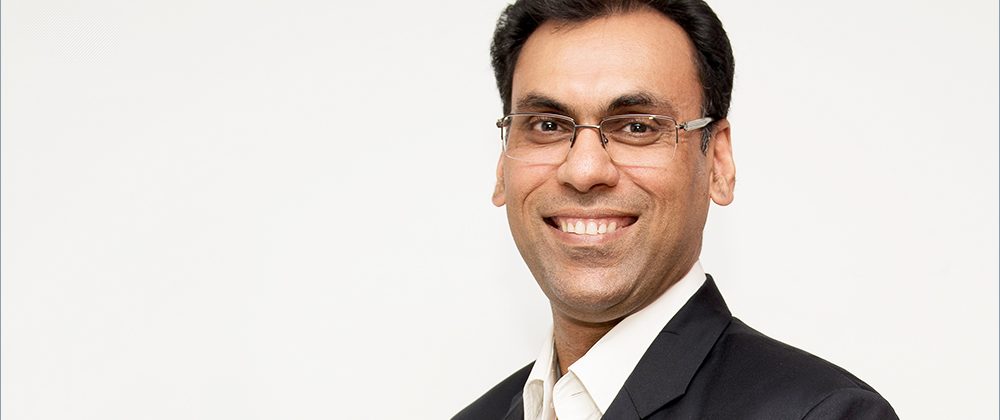For enterprises around the world, balancing security and efficiency is a critical imperative to sustain data integrity inside and outside the organisation. As a result, more companies are seeking solutions that ensure data and files are protected regardless of their format, who creates and uses them, or where and how they are shared.
Companies seek solutions that integrate seamlessly while leveraging established policies to enable secure collaboration with minimal intervention from users. They want to naturally augment their existing systems with persistent data-centric security, to protect information wherever it travels.
Seclore’s target verticals are banks, financial institutions, insurance companies, non-banking financial companies, manufacturing, pharmaceutical companies, public sector and government organisations. However, the need and demand for Seclore’s solution is ubiquitous, and there are several use cases for telecoms, utilities, ITeS as well as in SMEs.
Seclore’s go to market approach for Middle East is a two-tier channel structure. Seclore has divided the Middle East region into two territories. The first territory is Saudi Arabia, where it has a country manager and a team of specialists. The second territory is Rest of Middle East representing the other five countries of GCC, which is handled by a regional head.
Saudi Arabian region has a separate partner network arrangement while Rest of Middle East is represented by one major vendor representative. In addition to distributors, we also work very closely with important large resellers in order to maintain close contacts with the complete value chain.
Seclore’s vendor representative for Rest of the Middle East territory is Ascent Middle East, based in Sharjah, UAE. Ascent has been active with Seclore for the last four years. In November 2016, Seclore appointed Data Wide as its new distributor in Saudi Arabia. Data Wide works with the energy, telecom, education, retail, banking and government sectors in Saudi Arabia.
Partners have traditionally been at the forefront of promoting the brand, and their hard work has ensured that Seclore is well recognised in the end user segment. Looking ahead, the next wave of growth anticipated by the channel partner community is driven by the digital security needs of government, utilities and telecom sector.
“Seclore’s go to market approach for Middle East is a two-tier channel structure”
“Seclore has divided Middle East into two territories, the first is Saudi Arabia, the second territory is Rest of Middle East”
“Saudi Arabian region has a separate partner network arrangement while Rest of Middle East is represented by one major vendor representative”
The Middle East is currently a hotbed for cloud, mobility and smart city digital initiatives. With this emphasis on mobility and collaboration, BYOD in the workplace is becoming a modern-day reality and organisations need to have an effective policy in place to ensure seamless and secure collaboration along with efficient control.
The latest product enhancements to Seclore’s Enterprise Digital Rights Management solution adds further advances in persistent, data-centric security. The technology offers usage controls and advanced capabilities to ensure files are secure wherever they travel thus helping the governments of the region to meet their digital initiatives securely.
With connectors, files downloaded from ERP, ECM Systems can be automatically protected to ensure that only authorised users are allowed to access them. Because of the persistent security, files cannot be misused, regardless of how they are shared: over email, shared drives, USBs, or cloud-based services.
Advanced features in the Enterprise Digital Rights Management technology include Bring your Own Key, two-factor authentication for server-to-server communication, email protector auto discovery, next generation policy federation, enhanced agentless access to protected documents. This helps to give more control to the CIOs long after the file has crossed the perimeter of the organisation. Traditional security measures do not offer this option to IT administration.
Findings from the ESG survey, commissioned by Seclore, suggest loss of sensitive information is a top concern for companies, and is assumed to be happening. While 98% of respondents cited the loss of sensitive data as a top or significant concern, many believe it is very or somewhat likely that sensitive data had been lost or accessed inappropriately in the last 12 months.
Multiple analyst reports and regional IT news coverage have already suggested that companies in the Middle East suffered larger losses than other regions over the last year, as a result of cyber incidents. Middle East companies want to exploit cloud technology, but they also need to ensure their own internal security processes and systems are robust and resilient before they entrust important data to third parties, which was identified by ESG as the main leakage point for enterprises.
ESG also revealed that IT faces a new set of challenges and requirements when protecting sensitive data assets. The need to collaborate with third parties makes file sharing a common occurrence, which can also pose a security threat if information is accessed by an unauthorised party.
In fact, 34% of respondents noted that 26% to 50% of their employees regularly share files with individuals external to their organisations. Other challenges include hybrid IT, the rise of the mobile workforce and shadow IT applications.
Clearly cybersecurity is no longer just an IT issue, if it ever was. Cyber incidents can damage every aspect of a business, from its physical and financial assets, to its brand and reputation. It is crucial, therefore, that cybersecurity is assessed, managed, and monitored like any other business risk. This requires a governance structure that goes right up to board level, as well as active oversight from the board. While this is becoming the norm elsewhere in the world, it is not yet the case in most parts of the Middle East.
Seclore has segmented Middle East into two regions and uses two-tier go to market channel structure, according to Amit Malhotra at Seclore.


